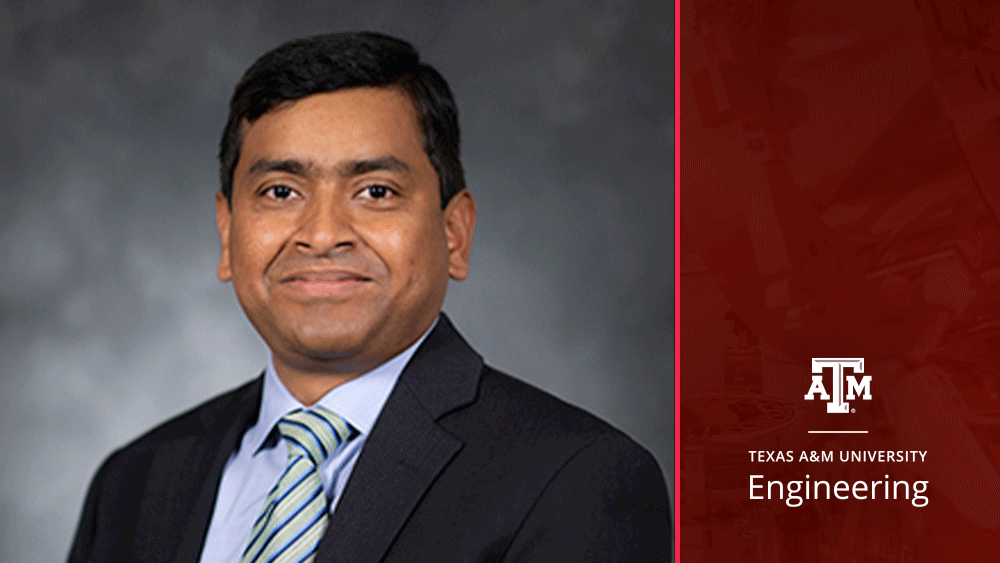
Dr. Faruque Hasan, associate professor in the Artie McFerrin Department of Chemical Engineering and holder of the Kim Tompkins McDivitt ’88 and Phillip McDivitt ’87 Faculty Fellowship at Texas A&M University, was recently elected as a director of the American Institute of Chemical Engineers (AIChE), Computing and Systems Technology (CAST) Division for 2022-24.
“The members of the division executive committees are seen as future leaders of society and the community,” said Hasan. “It is an honor to serve my professional community, and this is a step toward more meaningful engagement that goes beyond this role.”
AIChE is the largest professional organization for chemical engineers with over 60,000 members worldwide and several divisions. The CAST division focuses on a variety of activities involving computing and chemical engineering, systematic decision-making and process systems engineering ranging from process design, operations, intensification, optimization and control using techniques from applied mathematics.
The director position is voted on by AIChE members. As the director, Hasan will serve the CAST community through varying avenues such as the AIChE annual conference and poster sessions.
“The meetings include researchers, students and professionals, and they are a great platform to exchange ideas,” he said. “They showcase the power of servicing a community. Being a part of the planning of these events is one of the many reasons I am excited to be named director.”
Additionally, Hasan is a recent recipient of the CAST Outstanding Young Researcher Award and hopes to use his research findings and role as CAST director to make strides toward a greener future.
“The chemical and energy industries hold many of the keys for future sustainable and renewable energies like the creation of carbon capture processes, environmentally friendly energy storage systems and the development of a sustainable hydrogen economy,” said Hasan. “We are moving science in a new direction by applying computational and computer-aided methods to solve these pressing issues.”
Hasan hopes that by assuming a director role, he can further the efforts to solve some of Earth’s grand challenges that align with his research areas, such as reducing greenhouse gas emissions, developing sustainable energy resources and furthering carbon capture methods.
“What we have been doing and what we can do as a committee is share our knowledge so that upcoming researchers will have the tools and training necessary to solve these problems,” he said.